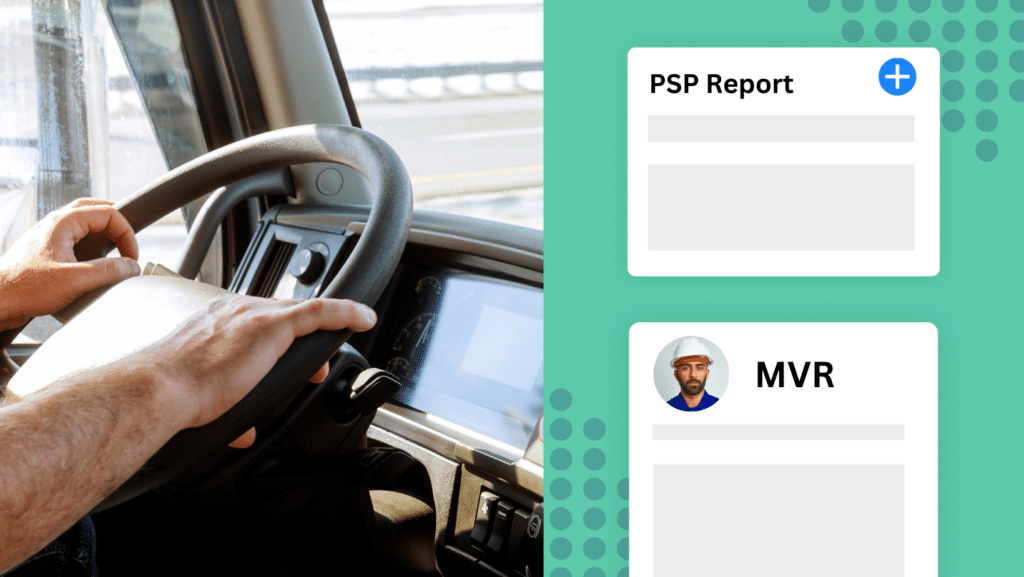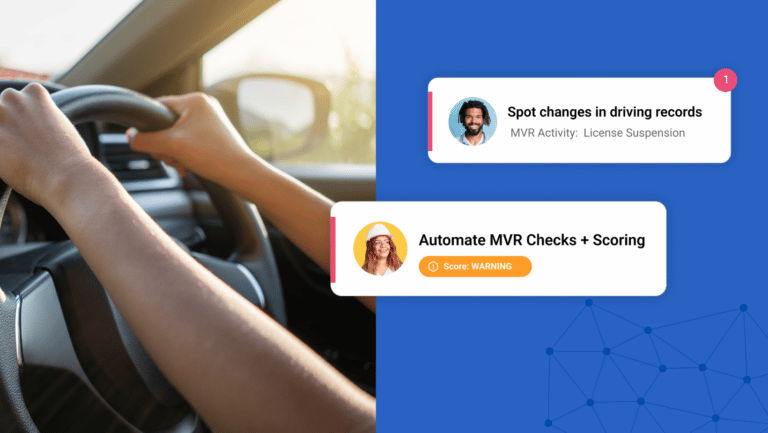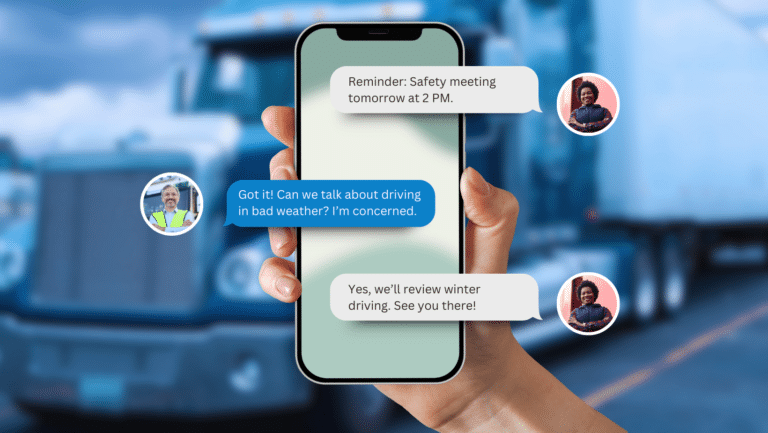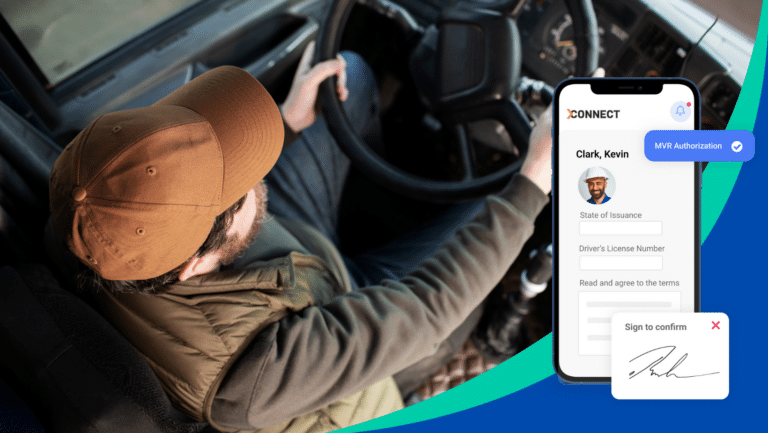How the FMCSA PSP Guides Safe Hiring Choices

Are you overlooking FMCSA PSP reports in your hiring checklist? If so, you could be missing out on a crucial tool for making informed hiring decisions.
Learn what information the FCMSA PSP reveals and how it can help you recruit and build a safer and more reliable team of drivers.
Negligent hiring risk
In an industry where safety is everything and the quality of drivers can make or break a company’s reputation, settling for a weak hiring process shouldn’t be an option. While it’s wise for companies with drivers to avoid negligent practices, many choose to deliberately overlook the risks of hiring unqualified drivers. The resulting burden of high turnover rates and the costs of screening and training new candidates weigh heavily on companies operating in this space.
A report by the Legal Action Center and National Workrights Institute analyzed 435 trial court decisions that held employers liable for negligent hiring. In these cases, employers were found responsible for damages resulting from the employee’s actions. Additionally, the evidence demonstrated that employers failed to take reasonable steps to ensure the candidate’s qualifications and suitability for the role. (Read more: Nuclear Verdicts: How to reduce exposure?)
Employers can effectively mitigate negligent hiring risk by implementing rigorous background screening processes and exercising due diligence in the hiring process. “Employers who conduct record checks and thorough background screens that also include employment history, skills, and job-relevant competencies when making hiring decisions are rarely held liable,” said Lewis Maltby, president of the National Workrights Institute.
In the case of employers who manage CDL drivers, this means going above and beyond basic screening tools. While Motor Vehicle Records (MVRs), employment verification, and driving tests give some insight into a candidate’s driving history, they only provide a partial view. That’s where the FMCSA PSP reports step in, giving a complete assessment of a candidate’s safety record and compliance with regulations.
What is the FMCSA PSP Report?
The FMCSA PSP report also known as the Pre-employment Screening delves deeper into a candidate’s driving history by providing detailed information on the last 5 years of crash involvement and the last 3 years of road inspection results and violations.
While the FMCSA PSP report is not mandated, when combined with other background reports, it becomes an indispensable tool in the hiring process and risk mitigation.
According to the FMCSA, companies using PSP to screen new hires lower their crash rate by 8% and driver out-of-service rates by 17%, on average, compared to those that do not use PSP.
Why Motor Carriers Should Obtain Both MVRs and PSP Reports?
To gain a comprehensive understanding of a candidate’s driving history, motor carriers should acquire both Motor Vehicle Records (MVRs) and Pre-Employment Screening Program (PSP) reports. Each report offers unique insights, and when combined, they paint a complete picture of the candidate’s risk level and safety record.
Motor vehicle records show a person’s driving history from a particular state’s Department of Motor Vehicles (DMV). This report reveals the status of the driver’s license and only includes incidents or violations previously convicted by a state court.
On the other hand, FMCSA PSP reports provide a more in-depth look and show violations at the point of roadside inspection or a crash. PSP reports include data from all CDL numbers a driver has held for the past five years, while MVR only includes data from the driver’s CDL issued by that particular state.
PSP reports always include the original violation regardless of whether it resulted in a different conviction, whereas MVR only includes events that resulted in a conviction by the state. A PSP report and MVR don’t always match since a state court can reduce tickets, warnings, and citations.
Utilizing both MVR and PSP reports guarantees thorough data collection and reduces the risk of missing critical risky driving patterns.
(Read more: MVRs vs. PSP Reports vs. CDLIS Reports: What’s the difference?)
How to obtain PSP Reports?

Through a comprehensive MVR Monitoring platform, HR and safety teams can streamline the hiring process by gaining access to the driving history and safety records of potential hires. MVR Monitoring simplifies the initial stages of hiring by facilitating the retrieval of MVRs and driver PSP reports.
MVR Monitoring doesn’t stop once a candidate is hired. It also provides ongoing monitoring of drivers’ records throughout their employment. This proactive approach allows employers to stay informed about any changes to drivers’ records, such as new DUIs, speeding violations, or license suspensions.
Learn more about MVR Monitoring tools: MVRs, MVR Consent, DQF Manager, Online Training, and more.
Safe and smart hiring with PSP Reports
For employers managing drivers, leveraging PSP reports as part of the hiring process is essential for mitigating risks, ensuring regulatory compliance, and maintaining a safe and reliable workforce. By incorporating PSP reports alongside other screening measures, employers can demonstrate their commitment to safety and make more informed decisions when selecting drivers for their teams.
*We are not lawyers. Consult with your legal counsel to ensure your processes and procedures meet/ or exceed safety standards and compliance regulations. Please read our legal disclaimer.






